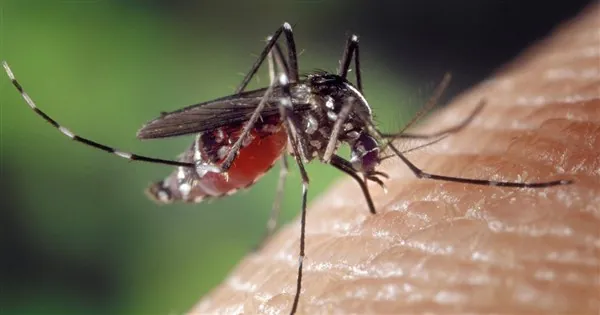
Revealed: Study Confirms 200m Spray Zone for Dengue-Carrying Mosquitoes!
2025-09-12
Author: Arjun
Dengue Mosquito Research Unveils Critical Insights
A groundbreaking study from the National Health Research Institutes (NHRI) has pinpointed the effective dispersal range of the notorious dengue-carrying mosquito, Aedes aegypti, to roughly 150 meters. This finding strongly backs the authorities' decision to implement a 200-meter spraying radius around reported dengue cases in southern Taiwan.
At a recent press conference in Taipei, assistant investigator Huang Chin-gi revealed, "When a mosquito-borne outbreak strikes, our primary aim is to eradicate virus-laden mosquitoes. Knowing their flight distance is vital for effective control measures."
Dengue Cases and Cluster Concerns
This year, over 98% of local dengue cases have emerged in southern Taiwan, with the Centers for Disease Control (CDC) recording 12 cases in the bustling port city of Kaohsiung by September 8. But with a dispersal distance of just 150 meters, why the continued outbreaks?
Huang explains that factors like insecticide choice and the techniques used by operators can hamper efforts, allowing the transmission to persist despite adequate spraying. "The control radius is only a single aspect of an effective response," he emphasizes, highlighting the importance of timely interventions.
Advanced Genetic Analysis of Mosquitoes
To gather more information, Huang’s research team collected Aedes aegypti eggs from ovitraps—special traps designed for mosquito egg-laying—across Tainan, Kaohsiung, and Pingtung County. The live mosquitoes were then reared for genomic analysis, revealing fascinating insights into their dispersal patterns.
Through investigating genetic relationships, researchers could determine how far these mosquitoes may travel to lay eggs or mate. The median dispersal distance for closely related mosquitoes was found to be approximately 154 meters, with values typically ranging between 126 and 180 meters.
Roads Aren't Barriers, But Boundaries Are!
Interestingly, Huang noted that roads do not serve as barriers for these mosquitoes; they traverse streets freely. However, the study found that administrative district boundaries significantly influence genetic differentiation among mosquito populations, mainly due to human-driven control measures like spraying.
Huang pointed out, "Differences in control measures across districts create pressure on mosquito populations, leading to genetic separation. If mosquitoes migrate into an area with active spraying, they're usually eliminated before they reproduce."
A Historical Study with Ongoing Impacts
Since 2020, Huang's team has diligently collected mosquito eggs for a research project spanning three years. Their comprehensive study, titled "The Impact of Administrative Districts and Urban Landscape on the Dispersal of Aedes aegypti via Genetic Differentiation," was recently featured on the cover of the prestigious journal, Molecular Ecology.
As Taiwan grapples with dengue outbreaks, this vital research provides key insights that could enhance strategies for controlling these disease-carrying pests, ultimately protecting public health.




 Brasil (PT)
Brasil (PT)
 Canada (EN)
Canada (EN)
 Chile (ES)
Chile (ES)
 Česko (CS)
Česko (CS)
 대한민국 (KO)
대한민국 (KO)
 España (ES)
España (ES)
 France (FR)
France (FR)
 Hong Kong (EN)
Hong Kong (EN)
 Italia (IT)
Italia (IT)
 日本 (JA)
日本 (JA)
 Magyarország (HU)
Magyarország (HU)
 Norge (NO)
Norge (NO)
 Polska (PL)
Polska (PL)
 Schweiz (DE)
Schweiz (DE)
 Singapore (EN)
Singapore (EN)
 Sverige (SV)
Sverige (SV)
 Suomi (FI)
Suomi (FI)
 Türkiye (TR)
Türkiye (TR)
 الإمارات العربية المتحدة (AR)
الإمارات العربية المتحدة (AR)